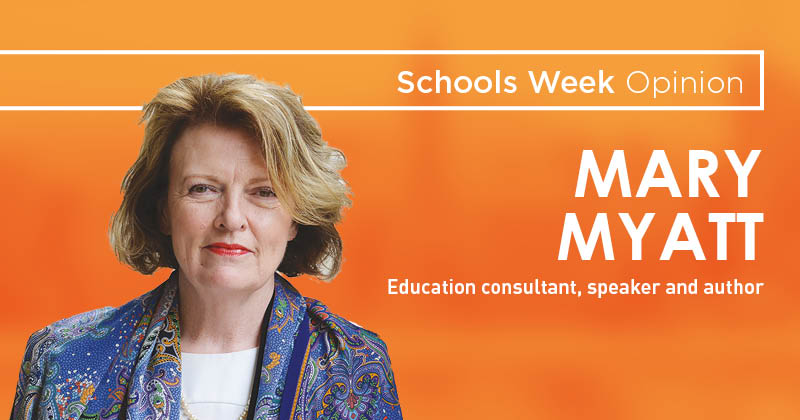The pupil premium is a wonderfully optimistic policy. But there are a few key ingredients that will help to boost the success of disadvantaged pupils – and it’s all underpinned by excellent leadership
In the past two years I have visited about 150 special, primary and secondary schools to learn about their use of the pupil premium. These are the active ingredients for success in achieving great outcomes for disadvantaged learners:
• The barriers to learning in the school community are carefully identified. It’s much more nuanced that “you should see the estate many of these pupils come from”.
• Pupil premium-funded activity is appropriate for overcoming these barriers. Activities are carefully planned, delivered with quality and informed by evidence. They are normally time-limited. Objectives are clear, ambitious and tight.
• Activity is closely monitored at regular milestones for both quality and impact. Changes are made as necessary.
• Leadership evaluates impact rigorously and unemotionally.

This approach is underpinned by excellent leadership – have a look at the Ofsted reports for the schools that won pupil premium awards in 2014. They demonstrate a strong correlation between closing the gap and great leadership.
Leaders ensure that disadvantaged pupils have a high profile across the school and that they are expected to attain well. In these schools the pupil premium is an important element of the school development plan.
Where other professionals are involved, leaders ensure decision-making is joined up with the needs of the pupil. Teachers, leaders and intervention leads agree appropriate action, focused on gaps in learning and not national curriculum levels. Additional support is exactly that – additional and extra to the teaching in the classroom.
Funding is spent evenly throughout each year group. Schools that intervene and support early, as gaps become evident, are far less likely to be “cohort vulnerable”.
The purpose of the pupil premium is to improve attainment for disadvantaged learners. It follows that the funding should be used to ensure these pupils receive consistently excellent teaching.
It should be used to ensure disadvantaged pupils receive consistently excellent teaching
In some cases, it should be used to maximise access to quality first teaching. This may be through intervention programmes such as Reading Recovery, to enable younger children to access the curriculum. It can be transport to school for a young carer. It can be to ensure pupils take part in field trips to provide a richer, more engaging curriculum and better understanding of subsequent class teaching.
Funding can be access to extra-curricular activities to improve attitudes to learning, and it can be breakfast to ensure pupils are not hungry and distracted.
In each case it should be with a very clear purpose – to get pupils learning in the classroom every day through quality first teaching.
Specific examples of spending to address a clearly identified need include, Slough and Eton CE Business and Enterprise College which used the money to give pupils with limited experience of visiting farms or museums broader cultural enrichment to broaden their horizons. Or Woodrow First School in Worcestershire that employed a family support worker to focus on those in the community who faced particularly challenging circumstances.
It’s simplistic to say “just get consistently high quality teaching”. Many schools in challenging communities find recruitment and retention difficult. It is quite appropriate, therefore, for funding to be used for sustainable approaches to quality teacher recruitment and development. For example: recruitment and retention premiums; sabbaticals; recruitment of subject/SEN specialists to academy chains or families of schools; ongoing, pupil-focused CPD; additional time for teachers to plan for/evaluate their impact on disadvantaged learners.
The pupil premium is a wonderfully optimistic policy. It is fertilisation of the possible for learners who have sometimes been allowed to whither through low expectations.
As spring approaches, we might think of every learner as a bud on a plant, packed with energy and potential, with the ability to transform into something even more special and unique. The pupil premium can be that little bit extra that helps those buds to thrive, burst into life and make their own contribution to the world.
Marc Rowland is deputy director of the National Education Trust. He is also the author of ‘A Practical Guide to the Pupil Premium’






A helpful article, with the exception of ‘through intervention programmes such as Reading Recovery, to enable younger children to access the curriculum’. Reading Recovery will help some children – indeed any reading one-to-one intervention programme will help some children. For other children Reading Recovery’s mixed methods approach simply confuses. This is documented in thousands of papers, articles,list servs throughout the English speaking world.
Have you ever actually experienced teaching Reading Recovery or even seeing the results it has on children’s confidence and self esteem? Who cares which method children learn to read by, as long as they learn to read. Talking like a robot or decoding nonsense words versus Reading Recovery…..no contest!
What can be wrong with tailoring support to the needs of the individual child? And if one strategy or method worked, then all children would be reading. Reading Recovery offers a balanced approach which enables children to read for meaning and to decode efficiently. Sadly, there are many children in our schools who do neither. Marc Roland is right to cite Reading Recovery as a good use of pupil premium.
A lot of schools in the areas Attend EDC covers use us as part of the pupil Prenium. We support with Attendance and Welfare issues. The results have been fantastic
What about if your child has Dysgraphia/ Discalcalia ?Single Parent severely Disabled a Brain Injury all living with OAP(Grandparents?Other than free school meals which he picks at .We are funding everything including all trips he has no plan that i have been shown ever the senco did not even know if he was on a Plan?Her response to me was he can’t use the computer all the time?Which was not my request i am funding extra English lessons on a Sunday which he enjoys and have just been told that i can’t decide how the money is used to benifit him?